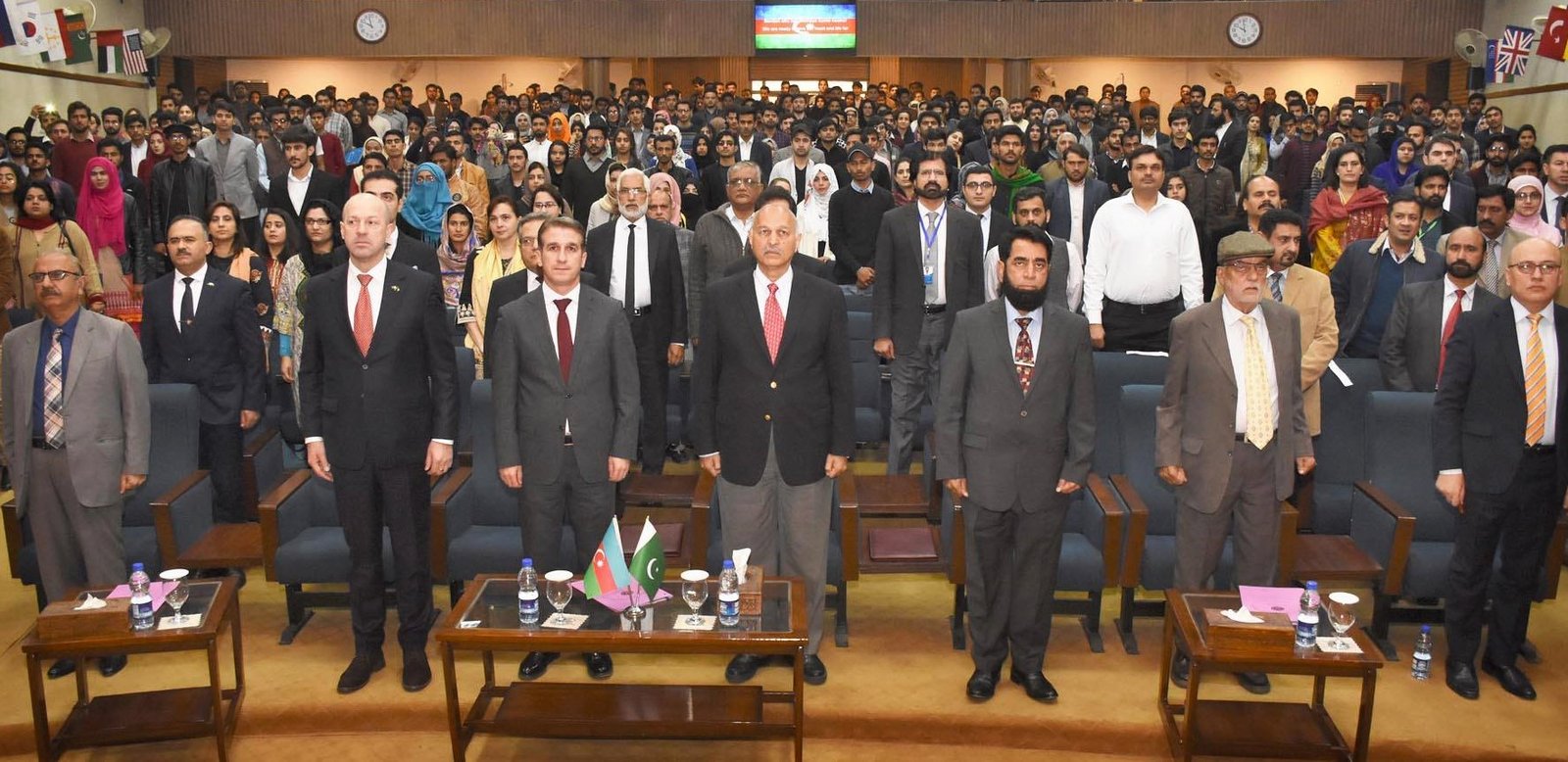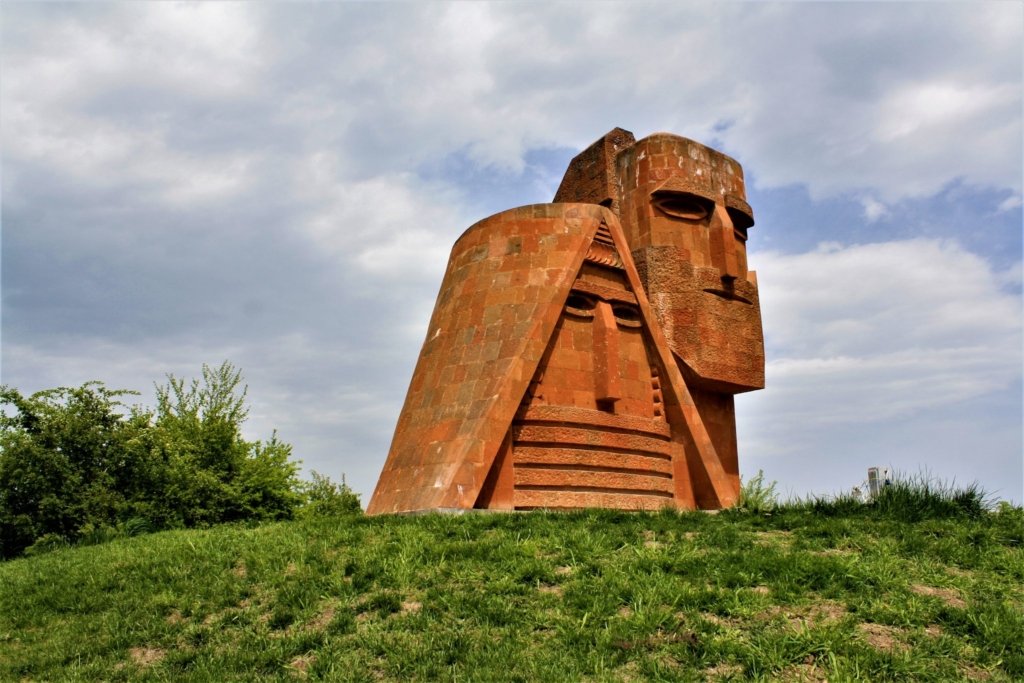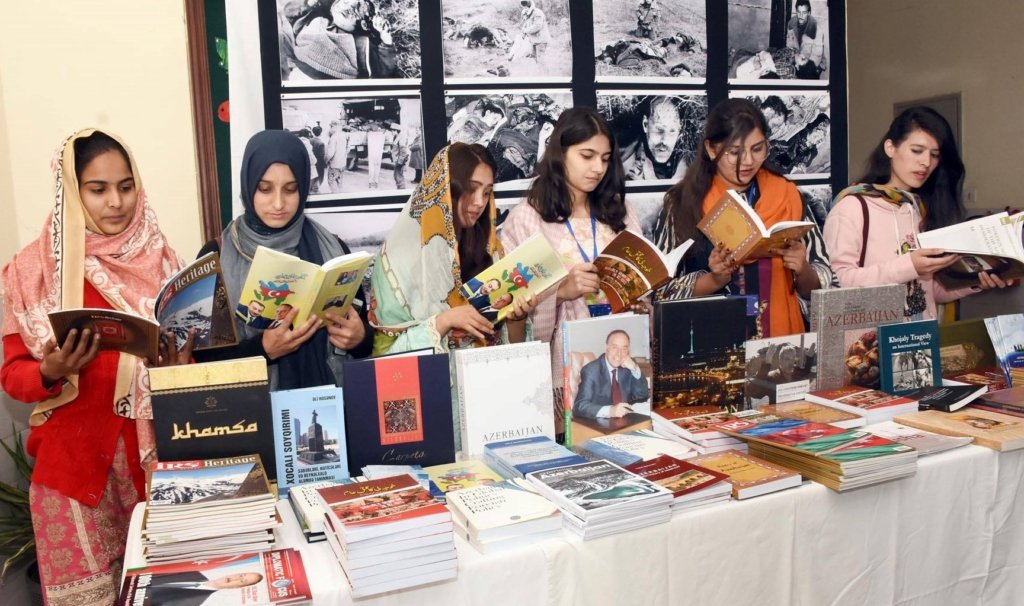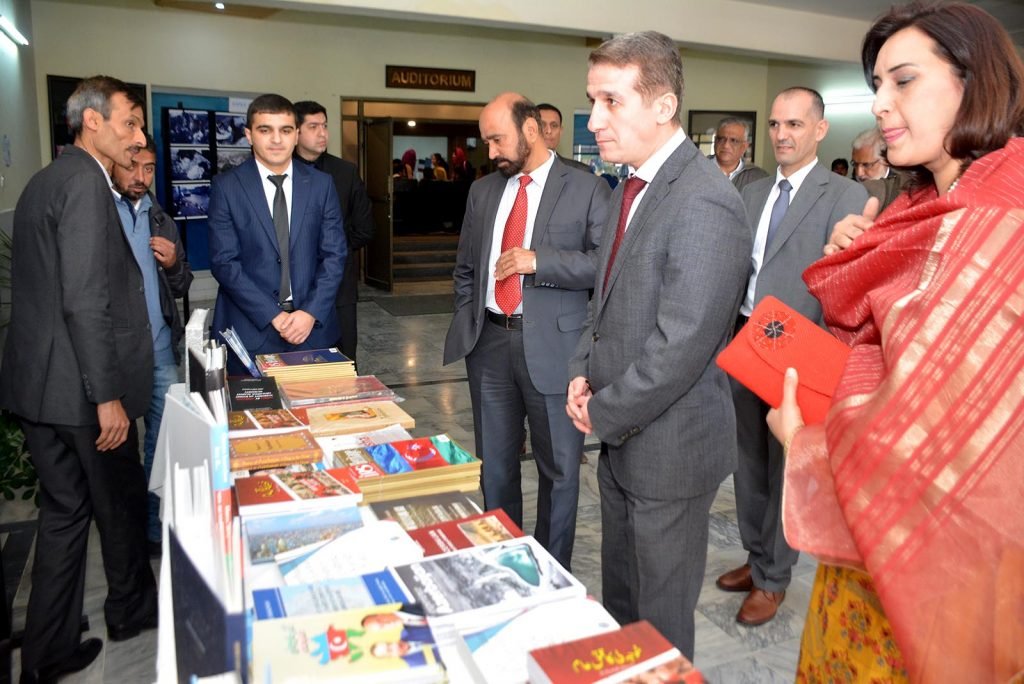 Azeri Ambassador Ali Alizada addressing a seminar on Together for Peace and Humanity. End to Ethnic and genocide jointly by embassy of Azerbaijan and NUML.
Azeri Ambassador Ali Alizada addressing a seminar on Together for Peace and Humanity. End to Ethnic and genocide jointly by embassy of Azerbaijan and NUML.
Khojaly massacre highlighted at a seminar at NUML to remember the 613 victims killed by Armenian forces on Feb 25-26, 1992
by Gul Nayab
ISLAMABAD: Pakistan affirms its support to the stance of Azerbaijan on Nagorno-Karabakh and considers the genocide in Khojaly, as one of the most serious crimes against the people of Azerbaijan, in particular, and the whole humanity, in general.
Pakistan has always supported the just cause of Azerbaijan and will continue to do so in future
This was the crux of the speech made by Senator Mushahid Hussain at a seminar on “Genocide and Ethnic Cleansing – Khojaly”, organised by the embassy of Azerbaijan in collaboration with the National University of Modern Languages (NUML) here on Monday.
Bosnian ambassador Sakib Foric and former President of Azad Kashmir Sardar Anwar also spoke at the seminar.
 Guests stand during the playing of the national anthems of Azerbaijan and Pakistan during the seminar on the Khojaly massacre anniversary at Numl university on February 24, 2020.
Guests stand during the playing of the national anthems of Azerbaijan and Pakistan during the seminar on the Khojaly massacre anniversary at Numl university on February 24, 2020.
The Khojaly massacre is one of the root causes of the Armenia-Azerbaijan Nagorno-Karabakh conflict.
Senator Hussain drew a parallel between the situations in Indian-administer Kashmir to that of Nagorno-Karabakh.
Pakistan is well aware of the feelings of the people of Azerbaijan and very grateful for their support on the Kashmir issue, said the opposition PML-N senator.
The Khojaly massacre is one of the worst genocides in human history.
“The gravity and enormity of the situation”, according to Senator Hussain “is overwhelming and cannot be justified”.
He stressed the need for greater coordination and cooperation between the two countries on the issues of Kashmir and Nagorno-Karabakh.
Tracing the links between the two countries Senator Hussain said that Pakistan and Azerbaijan were linked through shared cultural and religious histories and exchange of thinkers.
He also mentioned the human rights reports and UN resolutions describing the Khojaly tragedy as “the largest massacre to date in any conflict”.
He also highlighted the insensitivity of the international community, and the global powers as well as the silence of media on the issue.
The Ambassador of Azerbaijan Ali Alizada gave a brief overview of the Khojaly massacre and said the graveyard is a symbol of all the atrocities that took place during this incident.
He reminded the world of its responsibility and said it should exercise the same principles and rules while dealing with the issues of Nagorno-Karabakh and Kashmir.
The world powers must end double standards. He exhorted that we must learn from history and in order to avoid such tragic incidents in the future, there has to be a uniform stand against this crime and the perpetrators must be brought to justice, ambassador Alizada emphasized.
He acknowledged Pakistan’s role being the first country to recognise the Khojaly massacre as genocide.
He described the Khojaly massacre a bloody episode in human history and a bloody chapter of the policy of ethnic cleansing of Azeri people by the Armenian nationalists over a century.
He stated that the principle position of both countries on humanitarian issues demonstrates serves to reinforce the deep bonds of friendship between the two nations.
Ambassador Alizada called for joint efforts by the international community to ensure peace and stability both in Nagorno-Karabakh and Kashmir.
Pakistan Prime Minister Imran Khan had also reaffirmed Pakistan’s support for Azerbaijan on the Upper Karabakh conflict.
Khan had met with Azerbaijan’s President Ilham Aliyev on the sidelines of the World Economic Forum in Davos in January and discussed the whole spectrum of bilateral relations that are marked by mutual trust and support.
Aliyev had also expressed gratitude for Pakistan’s consistent support on the Upper Karabakh a territory of Azerbaijan illegally occupied by Armenia through military aggression.
Photographs of the incident were also put on display to highlight the humanitarian crisis. Students took a keen interest in the photographs and literature of Azerbaijan on display. Azerbaijan ambassador and other dignitaries took a round of the stalls.
Nagorno-Karabakh conflict
The conflict between the two South Caucasus countries began in 1988 when Armenia made territorial claims against Azerbaijan. As a result of the ensuing war, which erupted amid the collapse of the Soviet Union in 1992. Armenian armed forces occupied 20 percent of Azerbaijan, including the Nagorno (upper) Karabakh region and seven surrounding districts.
Azerbaijan’s government says that in one night alone, on 26 February, 613 Azeri civilians were massacred, including 169 women and children. According to BBC News, they were either shot dead by Armenian soldiers or froze to death as they tried to flee Khojaly in the disputed territory of Nagorno-Karabakh.
Up to 30,000 people on both sides were killed. And, according to Azeri government figures, almost one million people were forced to leave their homes, before a tenuous ceasefire was agreed in 1994, the BBC reported.
Today the region is in Armenian hands. And those Azeri civilians who fled during the war have not been allowed back.
This flood of displaced people has led to a humanitarian crisis with which Azerbaijan is still struggling, the BBC says.

The High Asia Herald is a member of High Asia Media Group — a window to High Asia and Central Asia



